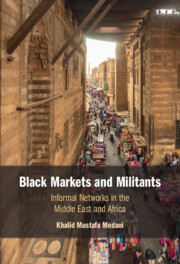Acknowledgments
The theme of trust that represents the overarching concept of this book, and the one that anchors its central argument, poignantly speaks to the remarkable level of “privileged” trust that I have enjoyed in the process of completing this manuscript. The willingness of scores of Egyptians, Sudanese, and Somalis to aid in my research for this book was just that: a Tillian understanding that their participation and work would ultimately contribute to a collective enterprise and an abiding faith that I would not betray their trust. I extend my heartfelt gratitude to all those who spent their time sharing their life experiences and entrusted me with communicating their “voices.” But if this book is in most respects an outcome of their generosity, it is also a result of the labor of my research assistants and friends. I am grateful to Tariq Hassabo and Mahmoud Mourad whose assistance was invaluable during my field research in Egypt, and Abdi Musa who guided me through my data collection and work throughout northern Somalia. All three insisted on instilling courage and resolve in me so that the complicated stories of their communities would be told by a trusted source. I am grateful to Elias Fatih Abdelrahman who first guided me through the historic quarters of Imbaba and introduced me to its inspiring and generous denizens.
I have benefited enormously from the guidance and support of many colleagues and friends. I am sincerely grateful to Malek Abisaab, Rula Abisaab, Laila Parsons, and Juliet Johnson at McGill University for their guidance. This book would not have been possible without the generous advice, guidance, and sanctuary that my friend Michelle Hartman provided me. The writing of this book began while I was a visiting professor at Stanford University’s Center for International Security and Cooperation (CISAC). I am indebted to Dr. Lynn Eden, former director of CISAC, whose long-standing support of my work is sincerely appreciated. This book would not have been possible without her mentorship. I am grateful to Kate Meagher and to Frances Hasso for supporting this project from its inception and for encouraging me throughout while I was a faculty member at Oberlin College. The completion of this book would not have been possible without the generous support of my friends in Montreal. I extend my deepest and most sincere thanks to Wilson Jacob, Elena Rozagova, Andrew Ivaska, Lara Braitsein, and Shahin Parhami. I am also deeply grateful for the comments and input that I received from anonymous reviewers. I am indebted to Lauri King and Heather Porter for their editorial assistance, which vastly improved this work.
While this book took many years to complete, I was privileged to supervise a number of doctoral students throughout the writing process. I would like to acknowledge my former PhD students Daniel Douek, Merouan Mekouar, Line Khatib, Jeffrey Sachs, Christopher Anzalone, Ibrahim Sanni, Abdurrahman Abdullahi, and Mohamed Sesay as well as the many MA and undergraduate students at McGill who provided great inspiration over the years. I would like to extend my gratitude to McGill University, and especially to Professor Christopher Manfredi, who provided me with the support I required to complete this book.
I am grateful to several academic institutions and foundations that supported my research at various stages. The preliminary research conducted for this book was funded by a Rocco Scholarship in Advanced African Studies from the African Studies Center at the University of California Berkeley, a Ford Foundation Middle East Research Competition Fieldwork Grant, a Hamburg Fellowship from Stanford University’s CISAC, and a Humanities Development Grant from McGill University. The greater part of my research in Egypt, Sudan, Somalia, and Kenya would not have been possible without a grant from the Carnegie Corporation of New York. I would like to acknowledge my greatest debt and appreciation for the Carnegie Foundation for awarding me the Carnegie Scholar of Islam Award – a great honor that made the completion of this book possible.
Finally, there is “family.” I am extremely grateful to Atif, Alia, Arif, Adil, and the late Asim: my aunts and uncles whose knowledge of the region, inherited from my grandfather Jamal Mohamed Ahmad, required a meticulous truth telling upon which this book is based. I am also grateful and appreciative to Alawiyya Jamal Mohamed Ahmad whose brilliant and compassionate intellect has served as a model for me throughout my life. This project would not have been possible without her constant intellectual inspiration. My thanks go to Donna Murch who has been an intellectual and moral guide throughout my years in graduate school and beyond.
Ultimately, this project was conceived and executed under the constant guidance of my parents and siblings. Brilliant intellectuals all – this book was partially completed so that Amjad, Ahmad, and Hanine could share in its modest accomplishments. My sister Amal played the most central role in guiding this book to its completion. They were always with me as I traveled to Egypt, Sudan, Somalia, and Kenya – and all places in between – so that together we could do honor to the integrity and intellectual sophistication of our beloved late father, His Excellency Ambassador Mustafa Medani Abbashar. His insistence that intellectual investment always be closely intertwined with public service has guided this study from its inception.
This book is dedicated to Aida Jamal Mohamed Ahmed who more than anyone else taught me the most intricate details of the politics, culture, and history of the Middle East and Africa; mentored me on how to navigate academic and professional life with uncompromising integrity; and nurtured in me her abiding, uncompromising commitment to al-‘adl al-ijtimayi (social justice).

